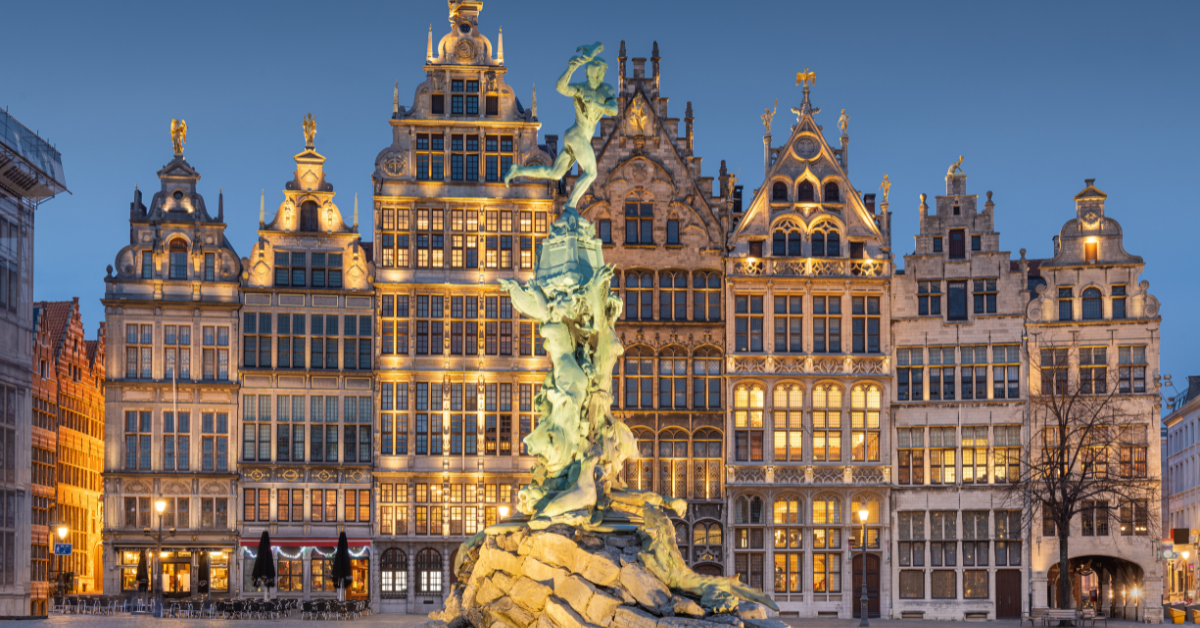Belgium is written in Japanese as “白耳義 (Hakujigi).” This is a phonetic transcription created during the Edo period, based on the Dutch pronunciation. The characters themselves carry no intrinsic meaning, but they remain a cultural relic of Japan’s early encounters with the West.
The Origin of the Kanji Name “白耳義”
The expression “白耳義” came to Japan during the Edo period via Dutch traders. It was derived from the pronunciation “Beruhie,” which was adapted into kanji. At that time, Japan tended to transcribe Western country names phonetically into kanji. Thus, the characters were not chosen for meaning, but purely to reflect the sound.
Examples of country names in kanji
| Country | Kanji | Reading | Modern Abbreviation |
|---|---|---|---|
| England | 英吉利 | Eigirisu | 英 |
| France | 仏蘭西 | Furansu | 仏 |
| Germany | 独逸 | Doitsu | 独 |
| Belgium | 白耳義 | Hakujigi | None |
As this table shows, “白耳義” is a phonetic transcription without meaning, serving as a cultural relic of Japan’s historical interaction with the West.
The Image Japanese People Have of Belgium
Belgium as a Gourmet Nation
The strongest image Japanese people have of Belgium is its food culture. Belgian chocolate is a luxury gift staple, while waffles are loved at street stalls and specialty shops. In addition, monastery-brewed beer and world-famous potato dishes contribute to Belgium’s image as a gourmet powerhouse.
Popular Belgian Foods Among Japanese People
| Food Culture | Features | Awareness in Japan |
|---|---|---|
| Chocolate | Luxury brands such as Godiva | Very high |
| Waffles | Authentic texture and variety of toppings | High |
| Beer | Hundreds of varieties with unique flavors | Medium |
| Frites (fries) | Eaten with special sauces | Medium |
In this way, Belgium is firmly established in Japan as a “delicious country.”
Medieval Streets and Tourism Appeal
Belgium preserves much of its European medieval charm, offering rich tourism resources. Brussels’ Grand Place, a UNESCO World Heritage site, and the canals of Bruges are particularly admired by Japanese travelers.
Tourism Image by City
| City | Attractions | Japanese Perception |
|---|---|---|
| Brussels | Grand Place, UNESCO heritage square | Splendid and majestic |
| Bruges | Canals, belfry | Romantic |
| Antwerp | Cathedral of Our Lady, “A Dog of Flanders” | Emotional and familiar |
| Ghent | Medieval castles, university town | Intellectual and calm |
Thus, Belgium is often described by Japanese visitors as a land of “storybook scenery.”
A Country of Art and Culture
Belgium is also a treasure trove of art. It produced world-renowned painters such as Rubens and Magritte and has contributed significantly to modern art. Moreover, Belgian comics, especially “The Adventures of Tintin,” have earned international recognition and interest from Japanese manga fans.
“A Dog of Flanders” has had a particularly strong cultural impact in Japan. The Cathedral of Our Lady in Antwerp, which appears in the story, remains a popular pilgrimage site for Japanese visitors. This work has become a cultural bridge between the two nations.
Belgium as a Sports Nation
Belgium also plays a prominent role in sports. Its national soccer team, known as the “Red Devils,” is world famous and consistently strong in the World Cup and European Championships.
The 2018 World Cup match between Japan and Belgium left a lasting impression on Japanese fans. Despite Japan taking the lead with two goals, Belgium made a dramatic comeback to win, a game remembered as a “historic match.”
Belgium is also a cycling powerhouse, hosting many of the world’s most prestigious classic races. Cycling is a national sport, and the passion of Belgian fans is legendary.
Belgian Sports and Japanese Interest
| Sport | Features | Awareness in Japan |
|---|---|---|
| Soccer | Produces world-class players | High |
| Cycling | Home of classic races | Medium |
| Tennis | Famous players like Kim Clijsters and Justine Henin | Medium |
| Judo | Olympic medalists, deep ties with Japan | High |
Through these achievements, Belgium is recognized as a nation that influences the global sports scene.
Conclusion
The kanji “白耳義” is a historical phonetic transcription created in the Edo period, chosen solely to represent the sound of the Dutch name for Belgium. While the characters themselves have no meaning, they serve as a cultural marker of Japan’s historical exchanges with the West.
In the modern era, Japanese perceptions of Belgium are multifaceted:
- Belgium as a gourmet nation
- Belgium as a land of medieval beauty and tourism
- Belgium as a country of art and cultural connections
- Belgium as a sports powerhouse
Together, these aspects shape the image of Belgium as a “delicious, beautiful, and strong” country in the minds of Japanese people.
From the days when Belgium was known as “白耳義” to the present, Japanese views of Belgium have evolved, but the nation’s appeal has never diminished. The ties between Japan and Belgium are sure to deepen further through food, culture, and sports.






